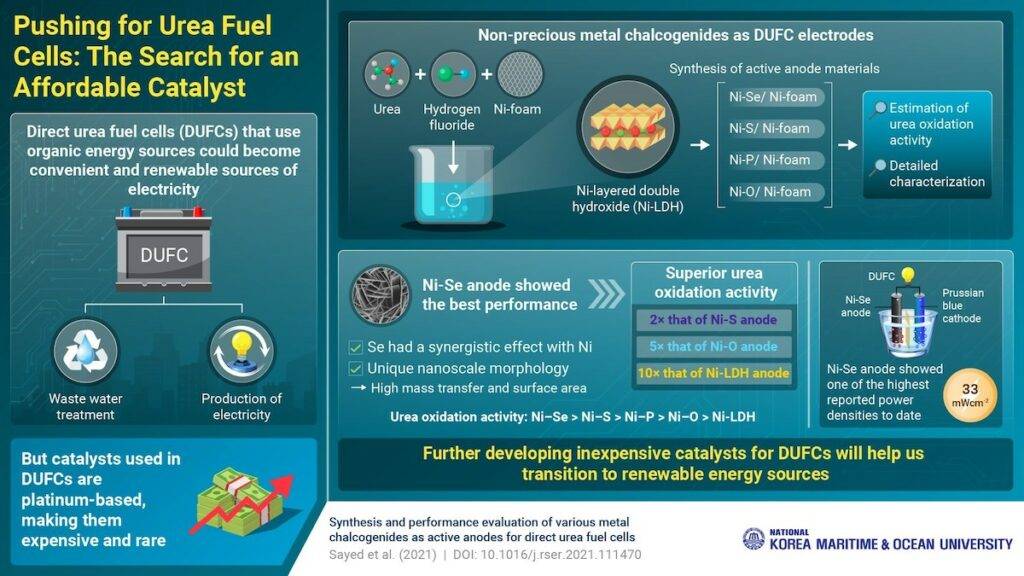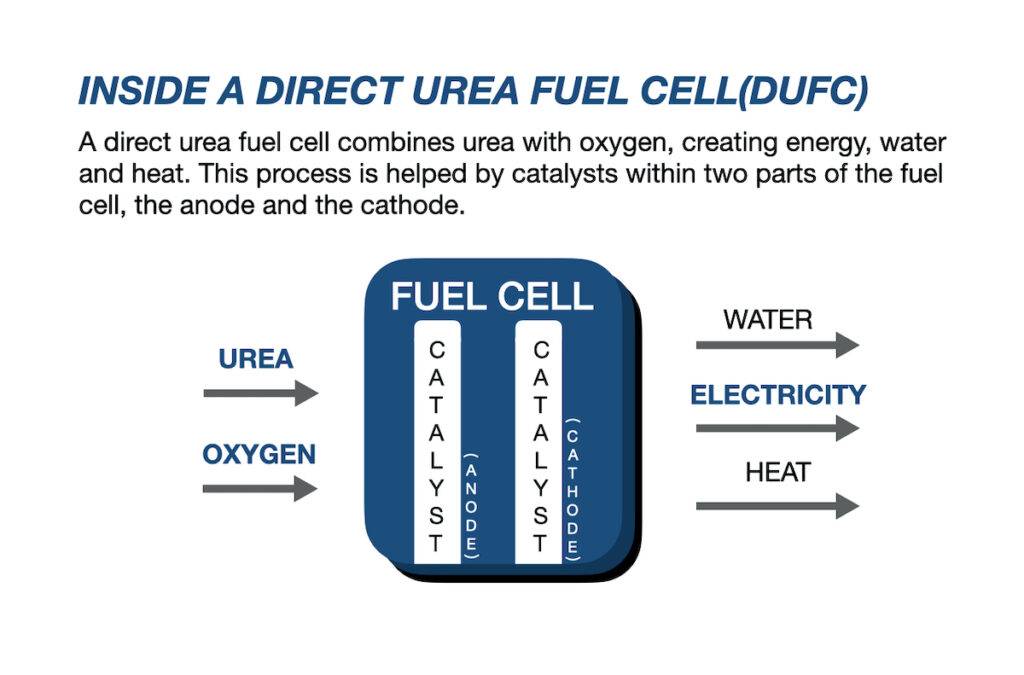A team of scientists in Busan, South Korea is discovering ways to turn wastewater (perhaps even our urine!) into fuel.
Off the coast of Busan, South Korea, is an artificial island, connected to the peninsula by a pier. On the island sits the Korea Maritime and Ocean University. And it is here that, in the University’s Water-Energy Nexus Lab (WENL), a multinational research team is at work on a project that may lead to a surprising possibility for a fuel source — urine.
The WENL team has published many of their findings on the production of energy from wastewater in respected science journals. But one of the studies zeroes in on direct urea fuel cells (DUFCs), a specific type of cell that produces electricity by breaking down the nitrogen-rich urea in wastewater.
Fuel cells are exciting to green energy advocates. They produce power with virtually no pollutants, they are silent, and, unlike solar panels, they can work day and night, almost entirely unaffected by weather.


Fuel cells are exciting to green energy advocates. They produce power with virtually no pollutants, they are silent, and, unlike solar panels, they can work day and night, almost entirely unaffected by weather.
“We can use urea from agricultural, industrial, and municipal wastewater to make energy,” says Tasnim Eisa, first author of the study. What’s more, “we can also purify wastewater to be released back into water systems.”
“We can use urea from agricultural, industrial, and municipal wastewater to make energy,” says Tasnim Eisa, first author of the study. What’s more, “we can also purify wastewater to be released back into water systems.”
Urea in wastewater comes not only from factories and farms, but also from human urine. Professor Kyu-Jung Chae, who leads the team, agrees with Eisa that, in the future, households may have small power plants that run on urea collected from their inhabitants. But currently, they say, it is more efficient to separate out urea from wastewater, because doing so not only provides fuel for DUFCs, but also contributes to treating the wastewater itself. Also, Eisa adds, “people don’t make enough urine to keep fuel cells running for a long time.” And while neither urine nor wastewater is ideal for energy production, “as engineers, we can change the condition of wastewater in facilities to optimize energy output, whereas it’s difficult for a household to treat urine by itself.”
Eisa’s study focuses on catalysts, which help fuel combine with oxygen within the fuel cell, thus increasing energy production. The team chose nickel as a catalyst instead of platinum, which is more typically used. “We chose nickel because it’s cheaper and has many good qualities for a catalyst,” says Professor Chae. What’s more, he adds, urea can eventually damage platinum in the DUFC, whereas nickel can handle urea for a very long time. The nickel catalyst turned out to be more efficient than platinum, making this particular DUFC cheaper and more appealing commercially.
An additional benefit of DUFCs is their suitability for remote communities, including even space shuttles.
With DUFCs, “a hot and trendy subject … right now,” Eisa says, “we’re expecting more studies and better catalyst materials to come.”
“We are still at the early stages of fuel cells as a whole,” Professor Chae agrees, “and scientists are continuing to look for better materials for DUFCs.”
While the research around this is just beginning, it’s quite possible that in the future, we’ll have fuel cells using wastewater to produce clean electricity for entire city blocks. And perhaps eventually, we’ll have tiny power plants in our washrooms, giving us electricity each time we take a bathroom break.


![[1] Maritime University view The Korean Maritime and Ocean University](https://bluedotliving.com/wp-content/uploads/2023/03/1-Maritime-University-view-1068x448.jpeg)